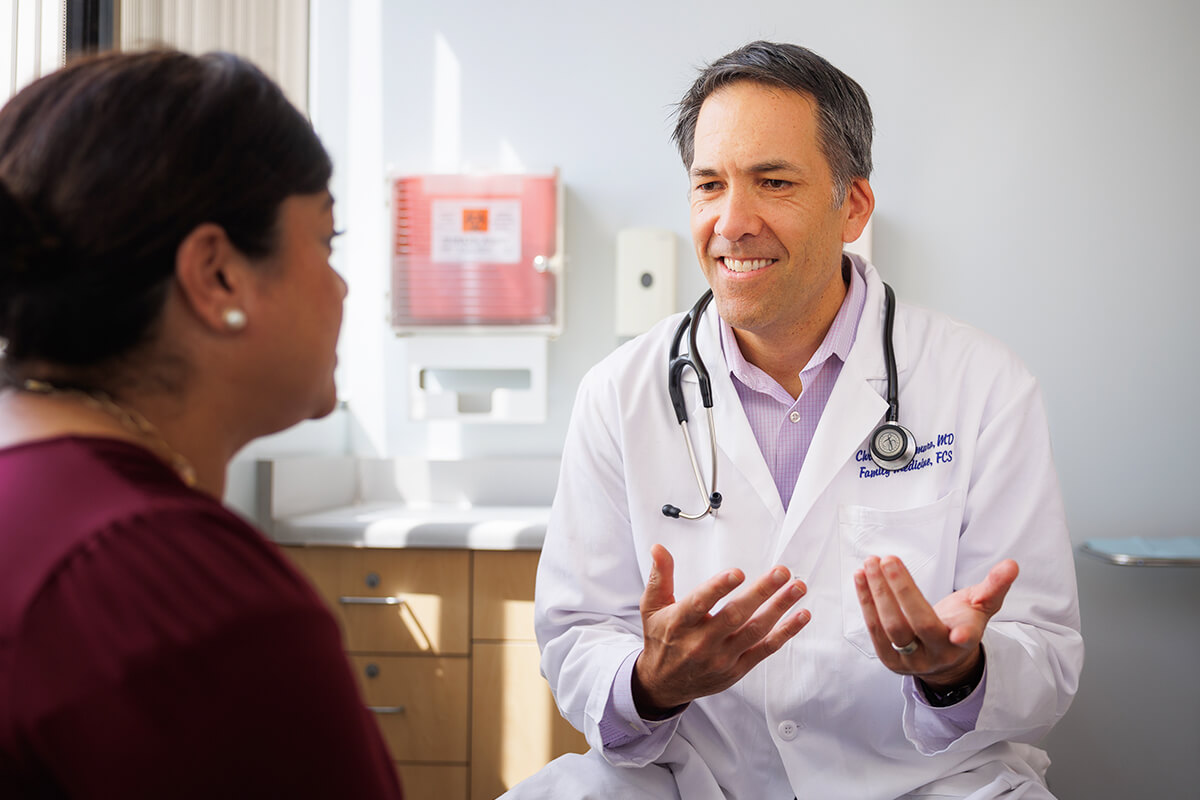Services
Pulmonology
Advanced treatment for respiratory health

Pulmonology services support your lung health and ability to breathe. Combining our expertise in the diagnosis and treatment of pulmonary conditions with the latest testing technologies and wellness regimens, Adventist Health Lodi Memorial offers one of the most comprehensive programs for addressing a wide spectrum of respiratory disorders.
A full spectrum of care
Our respiratory therapy department is experienced in diagnosing and treating the most common conditions, including, but not limited to:
The care you need to breathe easy
Between our extensive experience and advanced treatments, we bring you the standards of excellence you need to recover from or better manage your respiratory condition.
Thoughtful expertise
For more than three decades, we’ve been serving our community with an unwavering commitment to helping patients breathe and feel better. Our team of registered and certified respiratory therapists and ECG techs are caring professionals who specialize in administering a range of tests, services and treatments. Based upon our diagnostic findings and knowledge of your lifestyle, your doctor will recommend a treatment plan that may include medications, medical devices, physical therapy, lifestyle and/or diet changes, and in some cases, surgery.
Advanced testing
We utilize the most advanced technologies and programs to diagnose your condition, measure progress and to help you better manage your situation, so you can enjoy life with less disruption, fatigue or worry. These include:
- Pulmonary function testing: This test assesses your breathing, lung function and lung volume. It typically involves breathing into a device called a spirometer.
- Electroencephalogram (EEG): This non-invasive test detects respiratory problems by analyzing changes in brain activity caused by breathing. This is also helpful to detect neurological disorders.
- Bronchoscopy: This is a more detailed inspection of the lungs that involves inserting a small tube into your airways so the doctor can visualize and capture images of what is happening in your respiratory system. This is useful to detect abnormal growths and diagnose different types of disorders, including inflammation, infections or cancer.
- Pulmonary hypertension intervention: Patients who describe symptoms of pulmonary hypertension are given a thorough examination including certain tests followed by pulmonary rehabilitation if hypertension is diagnosed.
- Holter monitoring: A continuous recording of a patient's heart activity, typically over 24 to 48 hours, using a portable electrocardiogram (ECG) device. It helps physicians detect irregular heart rhythms, assess heart health, and evaluate the effectiveness of treatments.
- Treadmill stress testing: evaluates how the heart performs during physical exertion by monitoring the heart's electrical activity while the patient exercises on a treadmill. This test helps diagnose conditions such as coronary artery disease and assess overall cardiovascular fitness.
Education and rehabilitation
After treatment, we continue to support you with restorative rehabilitation programs tailored to your condition:
- Pulmonary rehabilitation: This multi-week program educates patients on their lung disease, how they can improve their quality of life, and reduce the risk of being hospitalized. Patients are also supervised on specific exercises designed to improve lung function, breathing and stamina.
- Cardiac rehabilitation: This program helps patients with cardiovascular disease maintain heart health and live an active lifestyle. With this intensive rehabilitation program, we educate you on your heart condition, risk factors and important lifestyle changes, then guide you through a 12-week exercise regimen, during which we monitor your heart and help you regain more vitality to enjoy your everyday life.